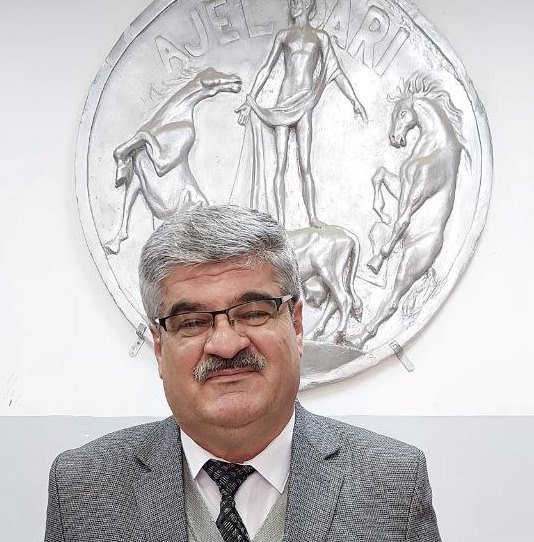Addressing the 2025 Foot-and-Mouth Disease (FMD) Outbreak in Iraq: Lessons from Rich and Poor Countries

Dr. Majed Hamed Al Saegh / poultry pathologist / Australia
Strategies to combat Foot-and-Mouth Disease (FMD) vary between rich and poor countries based on available resources and veterinary infrastructure. Below is a comparative analysis of how different countries handle FMD outbreaks, with key lessons for Iraq.
- Quarantine and Livestock Movement Control
Rich Countries (Example: UK – 2001 Outbreak).
- Strict livestock movement bans: The UK shut down all livestock markets within hours of detecting the disease.
- Use of digital tracking: RFID (Radio Frequency Identification) tags and geo-tracking systems helped monitor livestock movements.
- Farmer compensation: The government provided financial compensation for culled animals, encouraging farmers to report cases.
Poor Countries (Example: Ethiopia – 2019 Outbreak).
- Weak enforcement: Many farmers ignored movement bans due to their economic reliance on livestock.
- No compensation schemes: Farmers were reluctant to report cases as they feared losing their income.
- Slow tracking systems: Manual record-keeping slowed response times and worsened the outbreak.
Lessons for Iraq
- Enforce strict movement restrictions in affected areas.
- Deploy mobile veterinary inspection teams to check livestock markets and farms.
- Offer financial incentives for farmers to report infected animals.
- Vaccination Campaigns
Rich Countries (Example: Argentina – Controlled FMD in 2000s).
- Use of high-quality vaccines: Argentina relied on vaccines matched to circulating strains.
- Regular vaccination programs: They vaccinated livestock twice a year, even in FMD-free areas.
- Cold chain infrastructure: The government ensured proper refrigeration of vaccines.
Poor Countries (Example: Pakistan – 2021 Outbreak).
- Vaccine shortages: Farmers had to purchase expensive imported vaccines.
- Cold chain failures: Frequent power outages led to vaccine spoilage.
- Low vaccination coverage: Many smallholder farmers could not access vaccines.
Lessons for Iraq
- Secure high-quality, strain-specific vaccines with FAO and WOAH support.
- Use heat-resistant vaccines in areas with poor refrigeration.
- Provide government-subsidized vaccines for small farmers.
- Improving Biosecurity Measures
Rich Countries (Example: Denmark – Ongoing FMD Prevention).
- Strict farm biosecurity: Danish farms require mandatory disinfection stations.
- Safe carcass disposal: Infected carcasses are immediately incinerated to prevent spread.
- High-tech monitoring: Denmark uses drones and AI-powered surveillance to detect outbreaks early.
Poor Countries (Example: Sudan – 2018 Outbreak).
- Lack of hygiene enforcement: Farmers did not disinfect boots, tools, or vehicles.
- Poor carcass disposal: Dead animals were left in the open, allowing scavengers to spread the disease.
- Limited farmer education: Many farmers were unaware of basic disinfection techniques.
Lessons for Iraq
- Implement strict farm entry controls, such as mandatory disinfection.
- Educate farmers on proper carcass disposal methods, such as deep burial or burning.
- Deploy field veterinary teams for regular inspections.
- Surveillance and Early Detection
Rich Countries (Example: USA – Continuous Monitoring).
- Routine testing: The US Department of Agriculture conducts random FMD surveillance tests.
- Automated reporting: Farmers can report symptoms via mobile apps.
- Rapid response teams: Infected animals are culled within hours of detection.
Poor Countries (Example: Afghanistan – 2020 Outbreak).
- Delayed testing: Lack of diagnostic kits meant cases were confirmed weeks after symptoms appeared.
- No easy reporting system: Farmers had no way to quickly alert authorities.
- Slow response: Veterinary teams were understaffed and underfunded.
Lessons for Iraq
- Launch a hotline or WhatsApp-based reporting system for farmers.
- Establish mobile veterinary units for rapid disease investigation.
- Secure free or subsidized diagnostic kits through FAO and WOAH.
- Awareness and Training
Rich Countries (Example: Australia – Biosecurity Training Programs).
- Annual farmer education: Australian farmers receive training on disease prevention methods.
- Specialized veterinarians: The country has FMD-trained veterinarians for fieldwork.
- Public awareness campaigns: TV and social media educate farmers on early detection and prevention.
Poor Countries (Example: Nigeria – 2017 Outbreak).
- Lack of training programs: Many farmers did not recognize FMD symptoms.
- Limited veterinary workforce: The vet-to-farm ratio was too low to handle outbreaks.
- No public awareness efforts: There were no posters, TV ads, or social media campaigns.
Lessons for Iraq
- Train veterinarians and farmers on FMD recognition and prevention.
- Broadcast FMD awareness campaigns on TV, radio, and social media.
- Distribute printed guides in Arabic and Kurdish to rural farmers.
- Collaboration and Coordination
Rich Countries (Example: European Union – Coordinated Response).
- Regional disease response plans: The EU has joint strategies for FMD control.
- Shared vaccine banks: Countries maintain emergency vaccine reserves.
- Cross-border surveillance: Veterinarians cooperate across borders to track outbreaks.
Poor Countries (Example: Uganda – 2020 Outbreak).
- Lack of regional cooperation: Neighboring countries did not share outbreak data.
- No vaccine reserves: Uganda had to wait for international donations before vaccinating animals.
- Limited funding: FMD control efforts stalled due to budget constraints.
Lessons for Iraq
- Collaborate with FAO, WOAH, and regional authorities for data sharing.
- Establish a national vaccine reserve for future outbreaks.
- Seek international funding to support long-term FMD control.
Conclusion: A Tailored Approach for Iraq, Iraq, as a middle-income country, should combine strategies from both rich and poor nations:
- Enforce strict livestock movement bans while providing compensation to affected farmers.
- Conduct large-scale vaccination programs with FAO and WOAH assistance.
- Strengthen biosecurity at farms using low-cost but effective measures like disinfectant footbaths.
- Enhance surveillance and early detection through mobile veterinary units and digital reporting.
- Launch public awareness campaigns in Arabic and Kurdish to educate farmers and veterinarians.
- Coordinate regionally and internationally to secure funding, vaccines, and expertise.
By integrating scientific evidence, international best practices, and local resources, Iraq can effectively control the 2025 FMD outbreak and prevent future occurrences.



